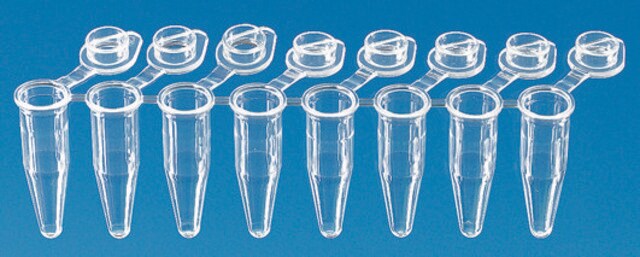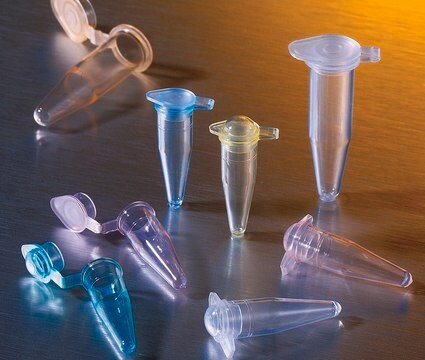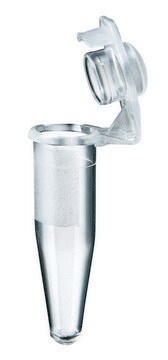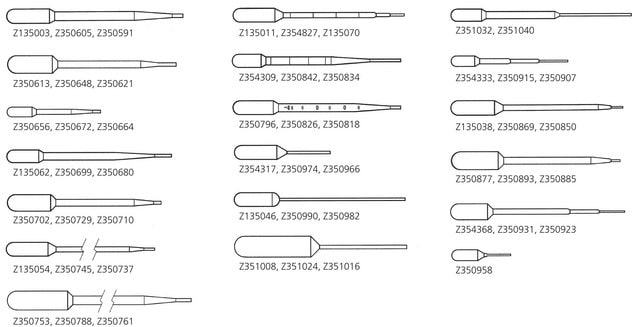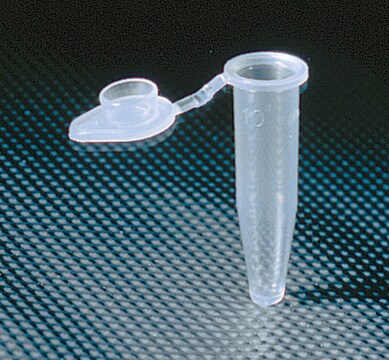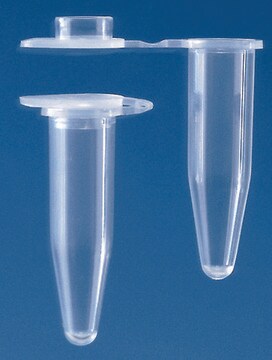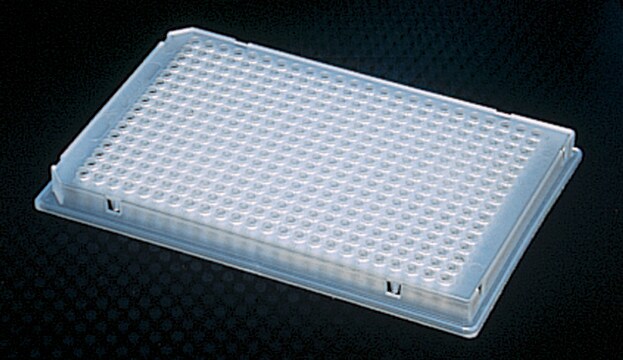Z374873
PCR microtubes with attached caps
capacity 0.2 mL
Sinonimo/i:
PCR Tubes
About This Item
Prodotti consigliati
Materiali
colorless cap
colorless tube
conical bottom
flat cap
polypropylene
polypropylene cap
polypropylene tube
Descrizione
Autoclavable
Sterilità
non-sterile
Caratteristiche
RNase and DNase free
autoclavable at 121 °C
graduations: no
Push fit
Confezionamento
pack of 250 ea
case of 4 packs
tecniche
PCR: suitable
Capacità
0.2 mL
Colore
clear
Compatibilità
suitable for (PCR applications)
Cerchi prodotti simili? Visita Guida al confronto tra prodotti
Descrizione generale
Scegli una delle versioni più recenti:
Certificati d'analisi (COA)
It looks like we've run into a problem, but you can still download Certificates of Analysis from our Documenti section.
Se ti serve aiuto, non esitare a contattarci Servizio Clienti
Possiedi già questo prodotto?
I documenti relativi ai prodotti acquistati recentemente sono disponibili nell’Archivio dei documenti.
I clienti hanno visto anche
Protocolli
Reverse transcription (RT) is the process of converting RNA to cDNA using a reverse transcriptase enzyme and dNTPs.
Hot Start dNTPs are modified with a thermolabile protecting group at the 3’ terminus. The presence of this modification blocks nucleotide incorporation by DNA polymerase until the nucleotide protecting group is removed during a heat activation step.
The most common application for qPCR is the measurement of a gene transcript or copy number quantity relative to one or more reference genes using probe detection.
A protocol that can be used as a basic template for qPCR incorporating a detection probe that is specific to a single target. In these reactions, primers and probe are included at a final concentration of 200 nM and are run using LuminoCt® ReadyMix™.
Global Trade Item Number
| SKU | GTIN |
|---|---|
| Z374873-1CS | 4061833580134 |
| Z374873-1PAK | 4061833569504 |
Il team dei nostri ricercatori vanta grande esperienza in tutte le aree della ricerca quali Life Science, scienza dei materiali, sintesi chimica, cromatografia, discipline analitiche, ecc..
Contatta l'Assistenza Tecnica.